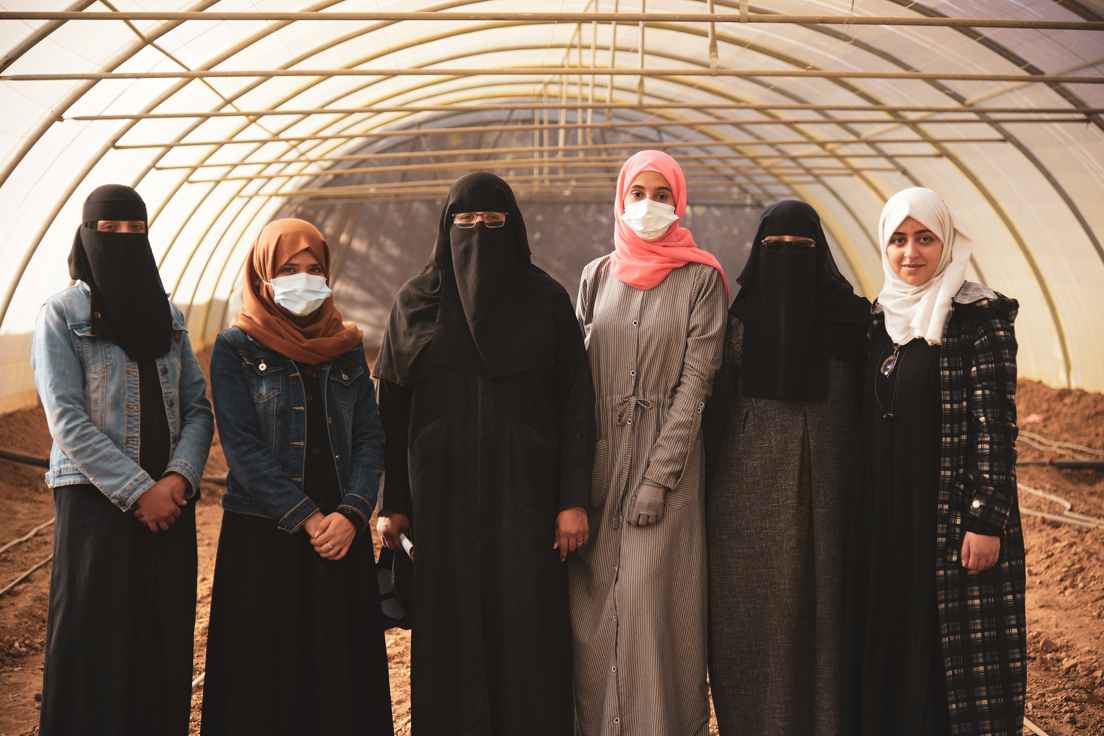Awraq Al-Shajara

Upon graduating from the College of Agriculture in Sana’a - majoring in animal production – ‘’Awraq’’ suffered from a lack of practical experience and dreamt about an entity that provides female graduates, such as herself, with the needed guidance to access the business market.
This ambition grew within Engineer ‘’Awraq Abdullah Al-Shajara’’ who lives in (Al-Rawdah area, Sana’a Governorate), and works as an agricultural engineer in the Ministry of Agriculture and Irrigation. She, therefore, sought to establish an agricultural cooperative that would bring together female agricultural engineers under its banner. In 2019 she established Athar Agricultural Association, which aimed to bring together agricultural female graduates and provide them with the required practical experience to access the market. However, despite all these efforts, the association still suffered financially and was lacking a clear vision, which represented a major obstacle to any activity that the association tried to implement.
Awraq believes that women play a central role in agriculture, so she seeks to enhance the engagement of female agricultural engineers in the market. “Women represent a large segment of the labour force in agriculture” Awraq Said. “In villages, for example, women are the ones who cultivate the lands, and plow the fields. From this standpoint, the association enhances the participation of women who are specialized in this field by providing many services for its members.

Athar Association implements projects specifically designed for female agricultural engineers, and trains fresh graduates, in a way that qualifies them to obtain jobs and secure an income. In addition, it provides training to farm owners and women farmers in rural areas” Awraq says.
Engineer Rasha, one of the associations’ members, said ‘’In university, knowledge was purely theoretical. After joining the association, my practical experience increased significantly, and I was able to test my knowledge in more than one area. I was trained in supervising greenhouses, and I was introduced through practical application to fertilization and prevention programs. Today, I am the supervisor and I train the new members.’’
Athar Association was one of the cooperatives supported financially and technically within the (ESPECRP) project. The cooperatives were trained in risk management, project continuity and strategic planning. About this experience, Awraq says, "I heard about SMEPS’s projects, and registered Athar association. After we were accepted, we were trained in preparing marketing plans, assessing risks, and feasibility studies. This, of course, would save us time and effort in implementing upcoming projects.”

After receiving the training and consultancy, the association prepared a feasibility study for the project and provided a list of the needed assets and operational costs. Athar Association received a financial grant of $15,000, which along with a financial contribution from the association was used to secure fixed assets, such as furniture for the office and six new greenhouses with the needed supplies. Awraq says: "The association's capital increased by providing the necessary assets within the project. Also, we were able to expand our relations with agricultural engineers, arboretum owners, and agricultural input suppliers who provide us with fertilizers and pesticides. All this would benefit the association’s activities in the future optimally. In addition to that, our members of female engineers’ confidence increased, and their practical experience has improved significantly.”
As for Engineer Rasha, who has become the supervisor of managing the greenhouses in this project and witnessed the impact on the association’s achievement after the intervention. She continues: “The support received aided us to develop and well-thought-out plans and implement them step by step. We became more organized in staff management and teamwork too.”
Rasha was introduced to the association through one of her colleagues. She joined with several others bringing the association members up to 37 female agricultural engineers at the time. Today the number has increased to 64 female members who share the vision of developing new agricultural skills and techniques, such as hydroponics, and introducing new and rare crops to the market, as well as undertaking new projects that answer to the market demands and needs, and contributes in achieving local self-sufficiency.
Athar Association was supported within the Business Association’s component of the Social Protection Enhancement and COVID-19 Response Project (ESPECRP), implemented by the Small and Micro Enterprises Promoting Services (SMEPS) in partnership with the United Nations Development Program (UNDP) and funded by the World Bank.